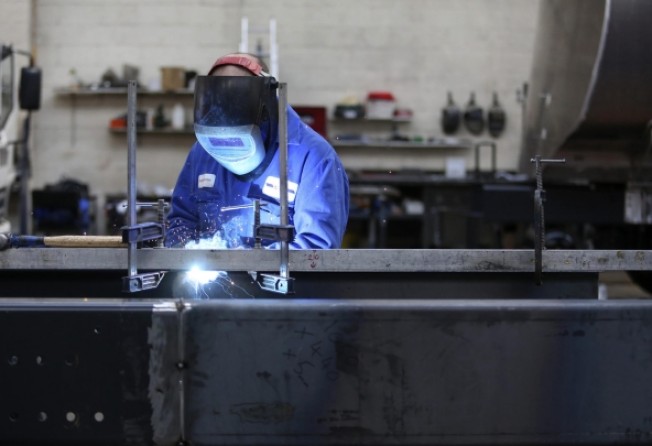
Euro-zone industrial output picks up
Production for April rises 0.4pc, putting paid to expectations of a drop, but decline in durable goods highlights weak household demand

Industrial output from euro-zone factories defied market expectations of a month-on-month decline to rise in April, data showed yesterday, but the pace of expansion was slowed by a drop in production of energy and durable consumer goods.

The bloc's economy remains crippled by the impact of the sovereign debt crisis as governments continue growth-slowing fiscal consolidation, with millions of Europeans out of jobs and small and medium-sized companies struggling to get credit.
The data showed that output of non-durable consumer goods increased 2.1 per cent in April, while capital goods gained 1.9 per cent from March.
But durable consumer goods declined 1.4 per cent after surging 2 per cent, a decline which signalled a continued weak state of household demand within the region.
"While April industrial production data is relatively encouraging, the euro-zone manufacturing sector is not yet out of the woods," said Howard Archer, the chief European economist at IHS Global Insight. "Indeed, conditions remain far from easy for euro-zone manufacturers."
The pace of the bloc's economic contraction slowed in the three months to March, compared with the previous quarter, but Europeans facing stressed labour markets remain reluctant to spend, preventing a more dynamic rebound.
The European Central Bank still expects a gradual recovery later in the year, but sees downside risks.
The bank left interest rates unchanged at record lows last Thursday and slightly lowered its economic outlook for the euro area this year, saying the economy would shrink 0.6 per cent but grow again by 1.1 per cent next year.
Industrial production in April was influenced by a 1.5 per cent drop in energy output month on month, the first decline in four months, and a 2.7 per cent fall in the production of cars, electronics and other durable consumer goods.
Eurostat revised its industrial production figure for March downwards, to show a rise of 0.9 per cent from 1 per cent.
Compared with April a year ago, industrial production fell 0.6 per cent after a revised 1.4 per cent fall in March, the data showed.
Germany, Europe's biggest economy, reported a 1.2 per cent monthly rise in April from March, while second-placed France swung back to a rise, with 2.3 per cent growth month on month.
Italy showed a third consecutive monthly decline - 0.3 per cent.
Manufacturing from Germany, France and Italy accounts for two-thirds of the euro zone's output.